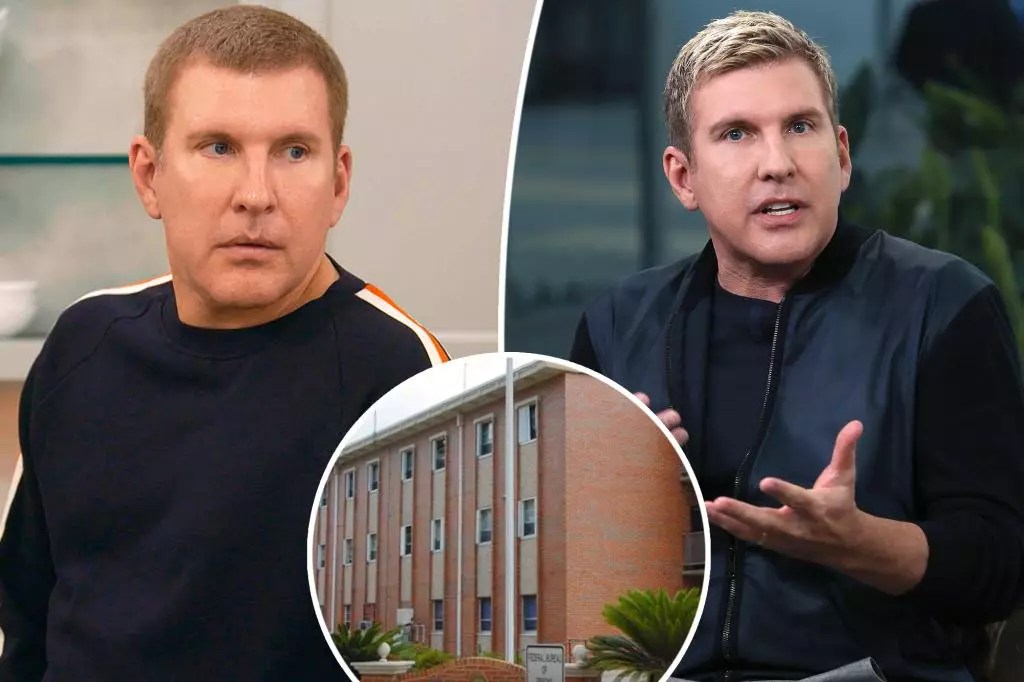Todd Chrisley, once a celebrated television personality known for reality series “Chrisley Knows Best,” is now navigating the harsh realities of life in prison. After being sentenced to 12 years for bank fraud and tax evasion, Chrisley’s life has taken a serious downturn. As a reflection of the broader implications of his criminal activities, Todd’s experience serves as a cautionary tale for public figures who find themselves on the wrong side of the law.
In June 2022, Todd and his wife, Julie Chrisley, were convicted of fraudulently obtaining loans through misleading documents. Their operations were not merely a one-off mistake but rather indicative of a calculated scheme that spanned over several years. Such actions have led to a significant loss of reputation and have redefined their public personas, transforming them from reality stars to pariahs in the entertainment industry.
Chrisley’s recent firing from his position as an Administrative Assistant to the Chaplain at the Federal Prison Camp Pensacola highlights the complexities of prison life. According to his attorney, Jay Surgent, Todd was dismissed from this role unexpectedly, without a clear explanation. The official reason stated was that he was allegedly in conversation with participants from a Residential Drug Abuse Program, a claim that raises questions about the transparency and fairness of inmate management. For nearly two years, Chrisley participated in this voluntary role, earning the satisfaction of his chaplain, which makes the abrupt termination all the more puzzling.
Surgent further expressed his client’s disappointment, noting that Todd had been actively involved in setting up religious services for various faiths, including Christian, Jewish, and Muslim audiences. This loss not only removes a source of purpose and connection to his faith but further isolates him during a challenging period in his life. It’s a stark reminder of how quickly circumstances can change, particularly in an environment where stability is a luxury.
The impact of Todd’s imprisonment on his family is profound, with his daughter, Savanah Chrisley, publicly advocating for prison reform on his behalf. In a distressing revelation, Savanah claimed her father faced retaliation as a consequence of her activism, underscoring the often-unseen struggles faced by families of incarcerated individuals. This dynamic illustrates the intersection of familial bonds and the bureaucratic intricacies of the penal system. To amplify her father’s grievances, Savanah has taken to social media, shining a light on the series of unfortunate conditions that have reportedly befallen Todd during his incarceration.
These challenges culminate in significant concerns about health and safety within prison facilities. Allegations of unsanitary conditions, such as the presence of rodents and poor food quality, have been voiced by Todd. These issues invariably call into question the overall treatment of inmates and highlight systemic flaws within the correctional system that deserve attention.
While Todd Chrisley faces daunting challenges during his prison sentence, his narrative serves as a critical examination of celebrity culture, accountability, and the often-harsh realities of the justice system. As he navigates these turbulent waters, the broader implications of his story resonate; the drive for fame can lead to reckless decisions, and the repercussions can be severe.
Moreover, the ongoing saga surrounding Todd and Julie Chrisley’s legal issues reflects a societal tension between the privileged status of celebrity and the legal system’s impartiality. As Todd’s daughter continues to advocate for change, it raises relevant questions: How do we reconcile the lives of those who once basked in the limelight with the stark reality of incarceration? Furthermore, what reforms are necessary to improve the conditions for all those caught in a similar predicament?
The story of Todd Chrisley goes beyond the headlines. It captures the complexities of human behavior, the pitfalls of fame, and the vital need for reform within penal institutions. As his narrative unfolds, it serves as a poignant reminder that actions have far-reaching consequences, reshaping lives not only for individuals but also for their families and communities.







Leave a Reply